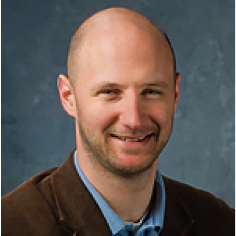 Many of my friends know that, at best, I am a “low-church” liturgist. A few years ago, most of the rigidity of the liturgical calendar was more binding than loosing to me – both as a pastor and as a Christian. While I certainly still lean away from the fixed rigidity of the liturgical calendar in terms of the specific days and texts, I’ve learned a lot over the past few years, particularly regarding the broader sweep of the liturgical year. I am drawn, like many of them, to the sense that we need to “re-order” our way of ordering our time according to God’s grand narrative and less of the way we normally look at the year. We should ebb with the momentum of God’s drama and not the script propelled before us by most of those who pass us by.
Many of my friends know that, at best, I am a “low-church” liturgist. A few years ago, most of the rigidity of the liturgical calendar was more binding than loosing to me – both as a pastor and as a Christian. While I certainly still lean away from the fixed rigidity of the liturgical calendar in terms of the specific days and texts, I’ve learned a lot over the past few years, particularly regarding the broader sweep of the liturgical year. I am drawn, like many of them, to the sense that we need to “re-order” our way of ordering our time according to God’s grand narrative and less of the way we normally look at the year. We should ebb with the momentum of God’s drama and not the script propelled before us by most of those who pass us by.
When it comes to the Advent and Christmas season though, the irony within this is that for many people, this season IS the high point of the year. Yet, for those of us who are attempting to enter into God’s grand narrative, in many ways the seasons of Advent and Christmas actually are our lowest points.
It might be strange to think about Christmas as the low point in a year, especially for a Christian. Yet, I’ve come to see that the liturgical year arc’s upward, ultimately climaxing not in Easter, but in Pentecost. This too might be strange to suggest since most tend to regard Easter as our high point, especially when so many within evangelical circles in particular have certainly heard a sermon during Advent about how Jesus was “born to die” or for those with a bit more of our understanding even “born to rise”. But, perhaps it is more aligned with the purposes of Jesus himself and the Father who sent him to say something like he was “born to release the Spirit upon and within the Church”.
Of the many reasons for Jesus coming, one of the most often overlooked is that he came to make way for the Spirit’s perpetual arrival, and he left (death, resurrection, and ascension) to make way for that arrival to be ongoing, permanent and always present, upon the church in particular. A few years ago I was part of a gathering of leaders with Dallas Willard and one of the many incredibly powerful things that he shared was that the Spirit was given in succession to Jesus so that Jesus might be everywhere that he needed to be. He went on to say this:
Jesus was aware that as long as he was here, as we say, in the flesh, he was an obstruction to the power of the Spirit coming into the very lives of people he was training. Limited to flesh he was not able to everywhere he needed to be, as he can now, because the Spirit brings him everywhere he needs to be. His death and resurrection was, among other things, Jesus’ way of getting out of the way of the Spirit.
If this were not his ultimate intention, how else could Jesus articulate something like he did in John 16 so clearly. “But, I tell you the truth, it is to your advantage that I go away; for if I do not go away, the Helper will not come to you, but if I go, I will send Him to you … He will glorify me, for He will take of Mine and will disclose it to you. All things that the Father has are Mine; therefore I said that He takes of mine and will disclose it to you.”
We are reminded in this season of Advent that the word became flesh and, as Eugene Peterson’s version says, “moved into the neighborhood”. He became a person to dwell among us as a person. But he did this so that he as the“Word” might become unfleshed so that it – by the power of the Spirit – could be everywhere and with everyone who is in the flesh – that is why he calls the Church his body.
The view of Advent then is not just historical, as in we remember the past, nor is it merely eschatological, in that we anticipate the future. In addition, and perhaps even ultimately, it is first pneumatic, then ecclesial, and then missional. The word became flesh and moved into the neighborhood, and then he moved out, so that He might move, through the Spirit, back into the neighborhood – not just with us – though he certainly is – but also within his body, the Church.
Perhaps this season moves us beyond reflection and nostalgia toward attentiveness (and ultimately action) to the ways in which the Spirit is bringing the person of Jesus into our specific neighborhoods, and among specific people, through “we” the Church. It is a season about the coming of Jesus, but the most faithful way to live within that is by actually sharing in his current presentness. It should also cause us to ponder whether or not we are moving within the arc of Advent—the beginning of the Church year– and it’s forward path from now until June. Is the Spirit’s presence among us increasing? Is our dedication to a Spirit-empowered Church strengthening? Is our love for this community and for its purpose abounding? If we love the season of Advent and the liturgical flow, then we will love these things as well.
One of my favorite images of Advent is one I heard from John Eldredge many years ago. He described this season as “God quietly seeding His revolution behind the scenes of time in the most quiet and unexpected manner in an exceedingly out of the way place.” Now, the revolution continues on, not having yet met its match. Undoubtedly it will not. The quiet revolution is in the neighborhood of your church right now, because Jesus is there, and you are too, even if it is happening in an exceedingly unexpected way.
Chris Backert serves as National Director of Fresh Expressions US.


